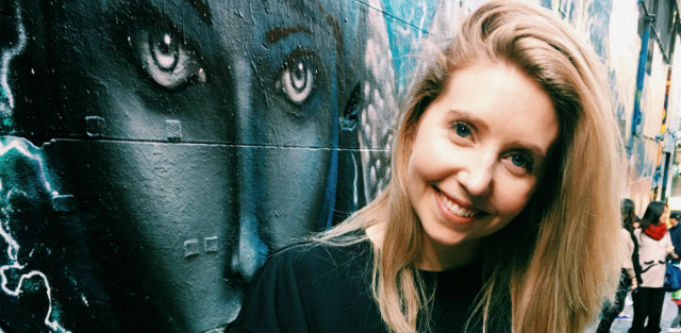
I only have one, very vague memory of seeing my dad in a suit and on his way to work. It was Christmas Eve in the early-90s and it was the one day every year that he would take us into the office.
Since then, Dad’s been more comfortable in a pair of shorts, Volleys and a simple t-shirt. It’s been his uniform of choice for more than two decades.
Both of my parents have always been hard workers and have never slowed down. I’m not sure they’d even know how if they tried. But their versions of work differ from one another
Based on their situation at the time, it made sense for Mum to go back to work and for Dad to be a stay-at-home parent after I was born.
From preschool onwards, my dad was always around. He’d pack lunches, drive us to and from school, attend every concert, and was even part of the P&C group at our school. Every one of our teachers loved him, the mums on the school-run adored him, and we always knew he was special.
But it was very obvious to us that our family was different.
Dad was literally the only father who would be there waiting to pick up the kids after the school day was done. It was mums and nannies, or no one at all.
Every other father was at work — maybe in an office, or possibly travelling the world.
As kids, while we loved having Dad around all the time, we did have to defend the decision to have him as a stay-at-home dad.
It was the 90s and it just wasn’t common.
It wasn’t easy. But as if I wasn’t going to stand up for my family.
Let’s just say I found my voice early on in life.
Our family has never been normal, and we’ve never played by the rules, but it’s only now, having just turned 30, that I finally understand the real and everlasting virtue in being true to yourself and following what works for you.
I recognise just how unique my parents were in the 90s and continue to be now.
I appreciate them working for the life they wanted and not settling for the life everyone else thought they needed to have.
If you look at the numbers crunched by The Australian Institute of Family Studies, the percentage of families with a stay-at-home dad in 2011 was just 4%.
Anne Hollonds, the Institute’s Director, explains that for many families, the stay-at-home dad option is simply an economic decision, “driven by unemployment, under-employment or disability and not a lifestyle choice to spend more time on parenting.”
In 2016, estimates from the ABS Labour Force Survey suggested there were 75,000 families with stay-at-home-fathers in Australia, again representing less than 5% of two-parent families, which basically means over the past five years nothing much has changed.
So, how much of it is to do with the outdated pride in being ‘the breadwinner’. How much of it is about what’s best for the family? And how much is caused by the lack of available services and policies, which should have equalled the playing field by now but haven’t?
Whatever the cause, there’s nothing more important than following the right path for your family.
It’s not about what works for others, it’s about taking the world and making it work for you — because you never might know what it will lead to in the future.
When my dad decided to stay at home in favour of my mum working, our world didn’t collapse and he didn’t become less of a man.
Our family grew stronger for knowing we were capable of thriving in an environment that was right for us.
This article was originally published on Women’s Agenda. Read the original article.
NOW READ: The role leaders can play in helping new parents return to work
NOW READ: From $50 a week to $250,000 a year: Here’s what Australian business owners pay themselves


COMMENTS
SmartCompany is committed to hosting lively discussions. Help us keep the conversation useful, interesting and welcoming. We aim to publish comments quickly in the interest of promoting robust conversation, but we’re a small team and we deploy filters to protect against legal risk. Occasionally your comment may be held up while it is being reviewed, but we’re working as fast as we can to keep the conversation rolling.
The SmartCompany comment section is members-only content. Please subscribe to leave a comment.
The SmartCompany comment section is members-only content. Please login to leave a comment.